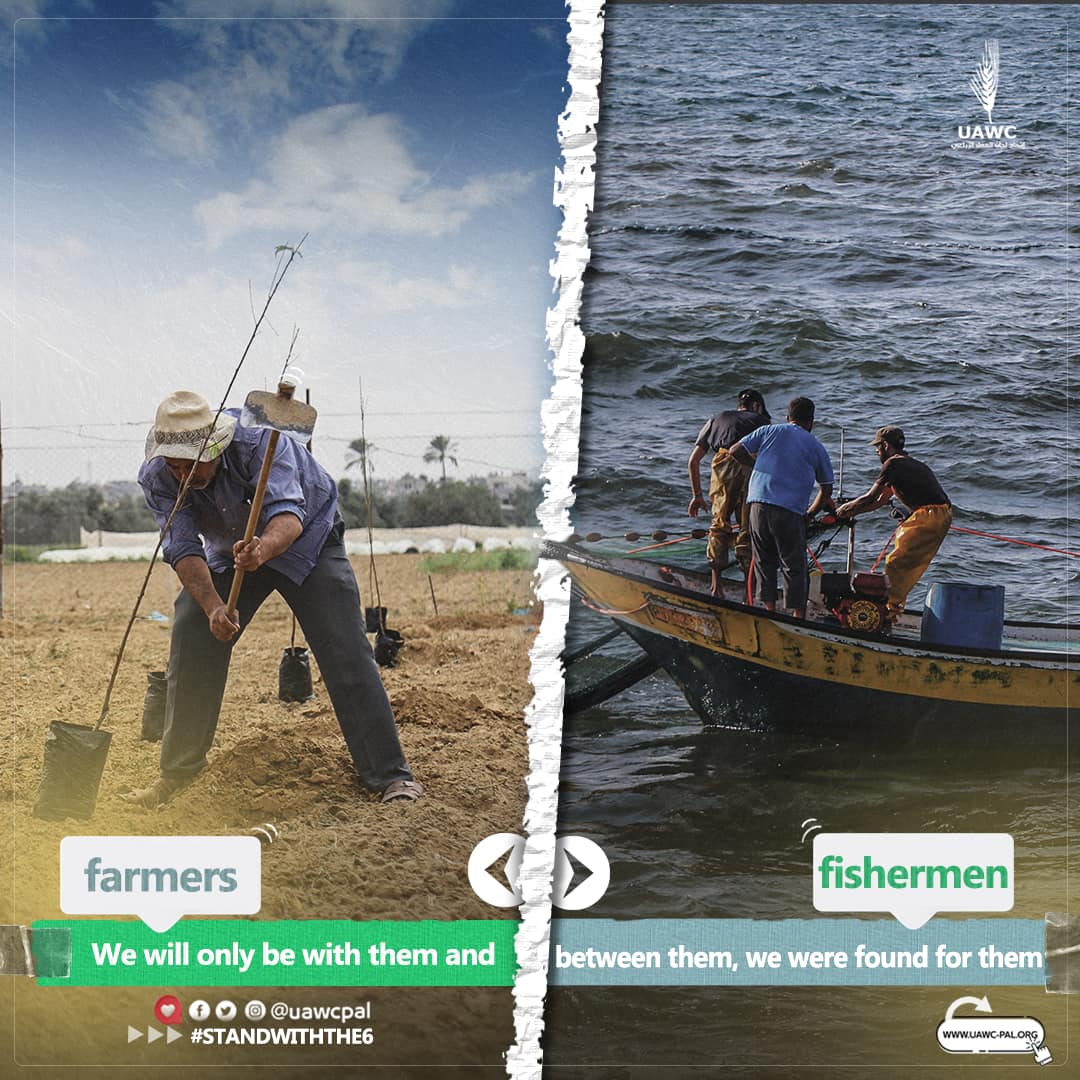Move comes despite external investigation finding no evidence of Israeli ‘terror’ claims made against Union of Agricultural Work Committees.

Ramallah, occupied West Bank – The Dutch government has said it will no longer fund one of the six major civil society and human rights organisations in Palestine which Israel banned as “terrorist groups” in October 2021.
In a statement denouncing Wednesday’s decision, the Ramallah-based Union of Agricultural Work Committees (UAWC) – for which the Dutch government has been the lead donor since 2013 – said “this is the first time a government ends its funding for Palestinian civil society based on political conditionality”.
The UAWC provides hands-on aid to Palestinians, including by rehabilitating land at risk of confiscation by Israel. It helps tens of thousands of farmers in Area C – the more than 60 percent of the occupied West Bank under direct Israeli military control, and where most illegal Israeli settlements and their infrastructure are located.
The group said it would consider legal steps to challenge the Dutch government’s “harmful and unfair decision”, which, it warned, was “likely to resonate far beyond our organisation”.
In October 2021, Israel banned six organisations as “terrorist groups” under the pretext that they are affiliated with the left-wing Popular Front for the Liberation of Palestine (PFLP). The move was widely condemned by the international community and rights groups as “unjustified” and “baseless” as the Israeli government has provided no evidence (PDF) to substantiate its claims.
Israel’s designation tied the six organisations to the armed wing of the PFLP, which was active as an organised body in the second Intifada (2000-2005) when it carried out attacks against Israeli civilian and military targets.
Five of the organisations are Palestinian: the Addameer prisoners’ rights group; Al-Haq rights group; the Union of Palestinian Women’s Committees (UPWC); the Bisan Center for Research and Development; and the UAWC. The sixth is the Palestine chapter of the Geneva-based Defence for Children International organisation.
External review
The Dutch government’s decision followed an 18-month suspension of funding to the UAWC.
In July 2020, the Dutch ministry for foreign trade and development cooperation had ordered a review following the arrest of two Palestinian employees of the organisation. The now-former employees were accused by Israel of being responsible for an August 2019 roadside bomb attack that killed a 17-year-old Israeli girl near the illegal Israeli settlement of Dolev in the occupied West Bank.
The investigation, conducted by the Netherlands-based Proximities Risk Consultancy group, began in February 2021 and covered the period between 2007 and 2020, during which the UAWC received Dutch funding. Its findings were presented on Wednesday at the Dutch parliament.
While the external review said the two former employees had “received part of their salaries from the Dutch-funded overhead costs,” no evidence of financial flows between the UAWC and the PFLP, nor links between the UAWC and the PFLP’s armed wing, were found. The investigation also said no evidence was found of staff or board members having used their positions in the organisation to organise armed attacks.
“Nor has any proof been found of organisational unity between the UAWC and the PFLP or of the PFLP’s providing direction to the UAWC,” the review said, only finding ties with the political and civic arms of the PFLP “at the individual level between UAWC staff and board members and the PFLP.”
“Proximities states that the UAWC could not be expected to be aware of individuals’ links with the PFLP,” the review continues.
‘Major blow’
In its Wednesday statement, the UAWC said the Dutch government’s “shocking and deeply troubling” decision was “based on a number of “individual links” that Proximities identified – alleged connections in private capacity of board and staff members of UAWC with the PFLP”.
Stressing that it “cannot (and does not want to) interfere with the personal political beliefs and affiliations of its employees and board members”, the UAWC said the decision legitimised and encouraged “the Israeli tactic of attacking Palestinian NGOs” through alleged political links of the people working for them.
“All of this is diverting international attention from Israel’s theft and confiscation of more Palestinian land and its brutal suppression of the Palestinian people living under military occupation,” the UAWC said.
Ryvka Barnard, deputy director of the UK-based Palestine Solidarity Campaign, described the move as “disgraceful” and said it “sets a very dangerous precedent” for Palestinian civil society groups.
“With increased global attacks on land defenders, indigenous people, and subsistence farmers, the Dutch government’s decision to defund UAWC on such spurious grounds is a major blow and it will go down in history as a real setback for progress,” Barnard told Al Jazeera. “UAWC’s work over the decades has been vital to support Palestinian farmers in the most vulnerable positions, subjected to horrible settler violence and illegal land grabs.”
Noting that the UAWC “has been a part of a powerful food sovereignty movement in Palestine and internationally,” Barnard said “these are the people we should be supporting, now more than ever, and instead they are being attacked.”
Martin Konecny, director of the Belgium-based European Middle East Project, said the decision was “highly political” and “not based on legal grounds & anti-terror requirements”. He said the review counters most of the Israeli government’s claims.
Since 1967, Israel has banned more than 400 local Palestinian and international organisations as being “hostile” or “unlawful”, including all major Palestinian political parties, such as the Palestinian Authority’s governing Fatah party and the umbrella Palestine Liberation Organization (PLO), with which Israel signed the 1993 Oslo Accords.
Israeli authorities have also slapped these designations onto dozens of charities and media outlets in Palestine, and used them to raid their offices, issue orders to shut them down, to carry out arrests and detain people, and to regularly try people for work exercising basic civil rights and for criticising the Israeli occupation, considered illegal under international law.
